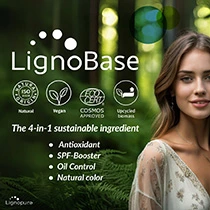British biotech partnership ferments “low-impact” cosmetic ingredients using upcycled bread to feed production
A new partnership brewing between biotech and beauty pilots new upcycled raw materials for cosmetics by using bread waste as a fermentation food source. The UK-based initiative is creating “bio-equivalent” replacements for commonly used, more agriculturally intensive oil and fat ingredients.
Biotech business Clean Food Group has partnered with THG Labs, a cosmetics developer and manufacturer. Their flagship product is a “low impact, high-performance” oil for beauty and personal care products.
“We are thrilled to be collaborating with Clean Food Group on a new era of innovation in sustainability. We’re constantly challenging ourselves to improve the environmental impact of our products, not only within the manufacturing facility but also in the supply chain of our raw materials,” comments Kristal Goodman, head of Product Innovation at THG Labs.
Eight years of pioneering research
The partnership comes after eight years of pioneering research led by professor Chris Chuck, technical lead at Clean Food Group. The proprietary technology platform uses “proven and scalable” non-GMO yeast strains and fermentation technology. It harnesses bread waste as a food source to deliver sustainable alternatives to traditional oil and fat ingredients.
“The work carried out by professor Chris Chuck and his team has inspired a journey to explore the full potential of Clean Food Group’s revolutionary technology, with the Innovation team at THG Labs championing this project and helping to drive progress with more sustainable solutions for the cosmetics industry,” says Goodman.
The collaboration leverages the “expertise” of THG Labs Innovation and R&D teams, which have over 30 years of experience in skin care, hair care and sun care.
“Their support will guide innovation and directly influence the cosmetic product pipeline,” says Clean Food Group.
“We are delighted to be collaborating with THG Labs, as a leading innovator and full-service manufacturer in the cosmetics industry. With the help of THG Labs, we are excited to bring to market a range of science-led cosmetics and personal care products that put sustainability at their core,” concludes Chuck.
Beauty is fermentation-forward
In more biotech advances for circularity, Melt&Marble is scaling its precision fermentation manufacturing of designer fats to over 10,000 liters, reaching a “critical milestone” in commercial production. The fats replicate animal fats, providing sustainable alternatives for use in cosmetics and food products.
Fermented beauty ingredients are seeing renewed marketability in gentle and effective skin care formulas, supported by a host of other new advances. A recent study in Cosmetics uncovered properties in a fermented extract of wild yellow gentian roots that offer natural benefits for skin hydration and lipid levels.
Personal Care Insights caught up with Croda at Cosmetic Business in Munich, Germany, about one of its latest fermentation-based ingredients, Luceane, for anti-aging applications and skin radiance and hydration. Technical marketing lead Larissa Legewie explained why the ingredient — made from fermented bacteria from the Bahamas — is positioned as the “first ingredient to combat hypoxiageing.”













